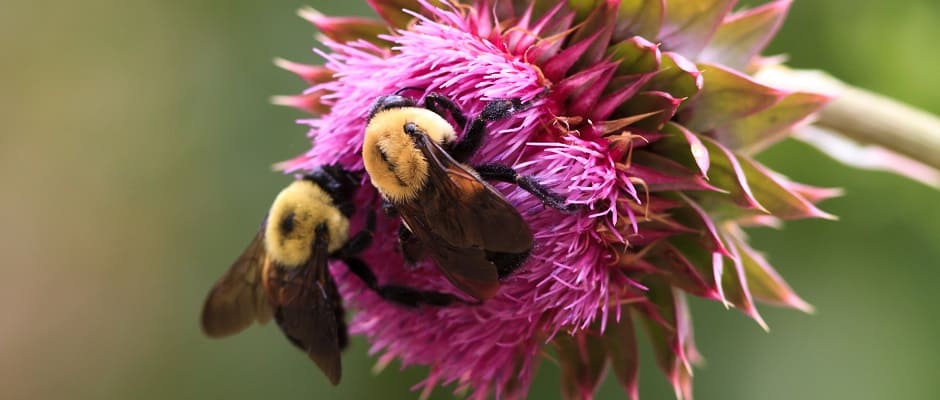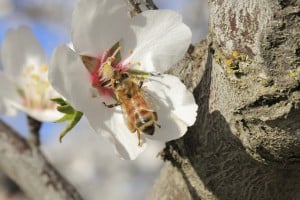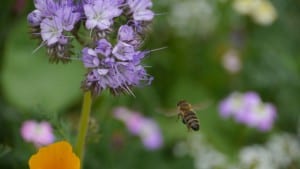Share this article
Why are bees such a hot topic?
Chances are you’ve come across a news story or research study focusing on the issue of honey bee health recently. It’s an important topic, and for good reason. Honey bees and other pollinators are integral to both urban and agricultural landscapes and to our world’s food supply. Although most of our largest crops do not depend on insect pollination, bees are critically needed for many of the vegetables, fruits and nuts we enjoy.
“Managed pollinators” include any species that is managed by humans. Honey bees are the most important pollinator in agriculture because they are generalists that can be easily moved across the country to pollinate a wide variety of crops. Other managed species include some bumble bees, leaf-cutter bees and orchard or mason bees.
Today’s beekeepers are coping with a broad range of issues. Most bee experts believe there are multiple factors affecting bee health, including parasites, diseases, lack of forage, poor genetics, pesticides (used on crops and in bee hives) and other stressors. But there is no doubt that the Varroa mite plays a major role. A multiyear survey recently published by university and USDA researchers found the Varroa mite is far more abundant than many people appreciated and is closely linked to several serious viral diseases.
When bees have access to diverse, natural forage, they’re better able to withstand harmful pests, like Varroa, and pathogens, like Nosema. A recent study found colonies that were fed protein supplements had higher rates of queen loss than colonies that fed on natural forage. Such studies indicate that increasing the variety and volume of bee-attractant plants available can lead to stronger colonies.
Fortunately, many groups are currently working on ways to improve bee health, including the Bayer North America Bee Care Program. Through research initiatives like Healthy Hives 2020, forage expansion projects like Feed a Bee, and partnerships with leading bee health organizations, such as Project Apis m. and the Honey Bee Health Coalition, Bayer has been committed to pollinator protection. With The Wildlife Society’s commitment to wildlife populations and habitats through science-based management, together we can make a lasting impact to help pollinators thrive.
Learn more about Bayer’s work with The Wildlife Society, including the initiative to plant millions of wildflowers this fall.
Bayer Bee Care is a Premier Partner of The Wildlife Society.
Header Image: ©Steve 1828










